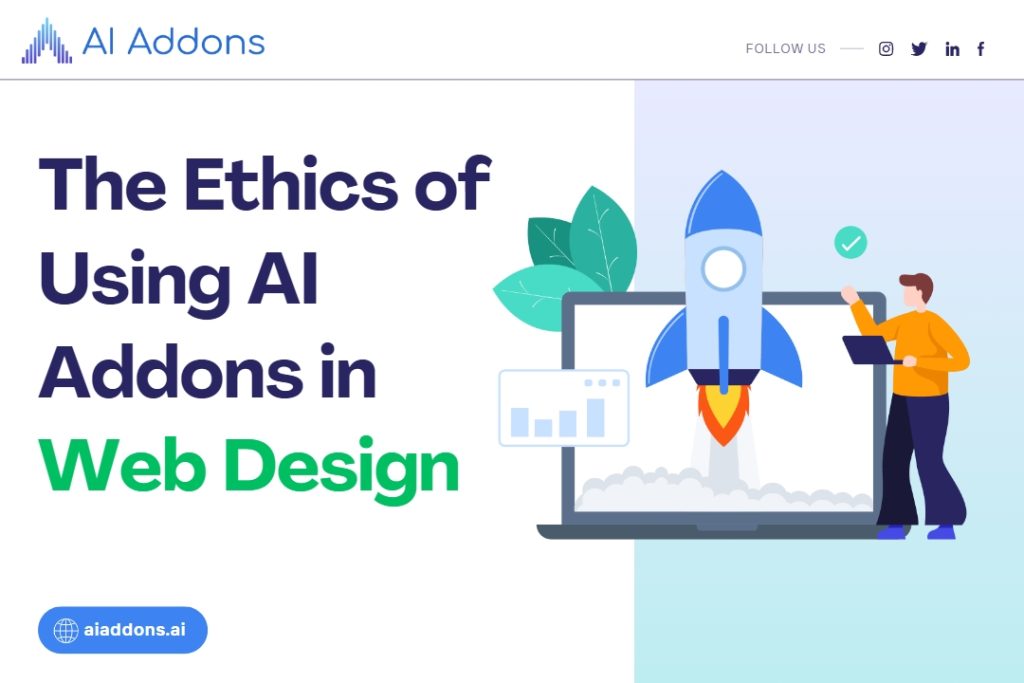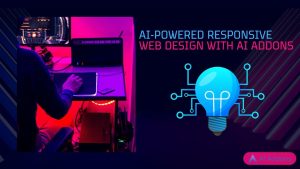The use of artificial intelligence (AI) in web design has become increasingly popular in recent years. AI-powered web design tools and elementor addons have made it easier than ever for designers to create stunning websites in a fraction of the time it would take using traditional methods. However, the use of elementor addons in web design raises important ethical questions that need to be addressed.
In this blog post, we will explore the ethics of using AI add-ons in web design and examine the potential benefits and risks associated with their use.
What is AI Add-Ons in Web Design?
AI add-ons in web design refer to the use of AI-powered tools and software to assist designers in creating websites. These tools use machine learning algorithms to analyze data and make predictions based on that data. They can help designers automate certain aspects of the design process, such as layout and color selection, and can also provide insights into user behavior and preferences.
Benefits of AI Add-Ons in Web Design
The use of AI add-ons in web design offers several benefits, including:
- Increased Efficiency: AI-powered web design tools can help designers work faster and more efficiently. By automating certain tasks, such as layout and color selection, designers can focus on other aspects of the design process, such as content creation and user experience.
- Improved User Experience: AI-powered tools can provide designers with valuable insights into user behavior and preferences. This can help designers create websites that are tailored to the needs of their target audience, resulting in a better user experience.
- Consistency: AI-powered tools can help ensure consistency in design across multiple pages or websites. By automating certain design elements, such as typography and color schemes, designers can create a cohesive look and feel that is consistent throughout.
- Accessibility: AI-powered tools can help designers create websites that are more accessible to users with disabilities. For example, these tools can automatically generate alt text for images, making them more accessible to visually impaired users.
Risks of AI Add-Ons in Web Design
While the use of elementor addons AI add-ons in web design offers several benefits, it also carries certain risks, including:
- Bias: AI algorithms are only as unbiased as the data they are trained on. Also, if the data used to train an AI-powered tool is biased, the tool itself will be biased. This can result in websites that discriminate against certain groups of people, such as people of color or people with disabilities.
- Lack of Creativity: AI-powered tools can only do what they are programmed to do. While they can automate certain tasks, such as layout and color selection, they cannot replace the creativity and intuition of human designers.
- Dependence: The use of AI-powered tools can create a dependence on technology. If designers become too reliant on these tools, they may lose touch with their own creative process and intuition.
- Privacy: AI-powered tools often rely on large amounts of data to function effectively. This data can include personal information about users, such as their browsing history and online behavior. If this data is not handled responsibly, it can be used to violate users’ privacy.
Ethical Considerations in Using AI Add-Ons in Web Design
The use of AI add-ons in web design raises several ethical considerations, including:
- Transparency: Designers should be transparent about their use of AI-powered tools and how they are using data to inform their design decisions. This includes providing clear explanations of how the tools work and what data they are collecting.
- Inclusivity: Designers should strive to create websites that are inclusive and accessible to all users. This means considering the needs of users with disabilities, as well as users from diverse backgrounds and cultures.
- Responsibility: Designers have a responsibility to use AI-powered tools in an ethical and responsible manner. This includes ensuring that they are not using biased data or algorithms that could result in discrimination, and taking steps to protect users’ privacy.
- Human Oversight: While AI-powered tools can automate certain aspects of the design process, human oversight is still necessary. Designers should not rely solely on AI add-ons and should be involved in the design process from start to finish.
- Continuous Monitoring: The use of elementor addons AI add-ons in web design should be continuously monitored to ensure that they are not being used to violate users’ privacy or discriminate against certain groups of people. Regular audits and reviews should be conducted to identify and address any ethical concerns that may arise.
Conclusion
The use of AI add-ons in web design offers several benefits, including increased efficiency and improved user experience. However, it also carries certain risks, including bias and a lack of creativity. To ensure that AI-powered tools are used in an ethical and responsible manner. Designers should prioritize transparency, inclusivity, responsibility, human oversight, and continuous monitoring. By doing so, they can create websites that are not only visually stunning but also ethical and accessible to all users.


